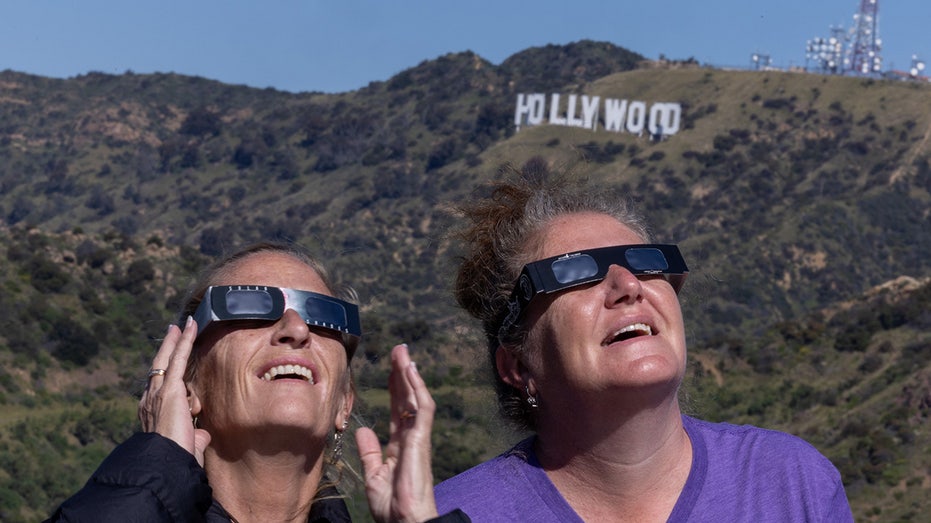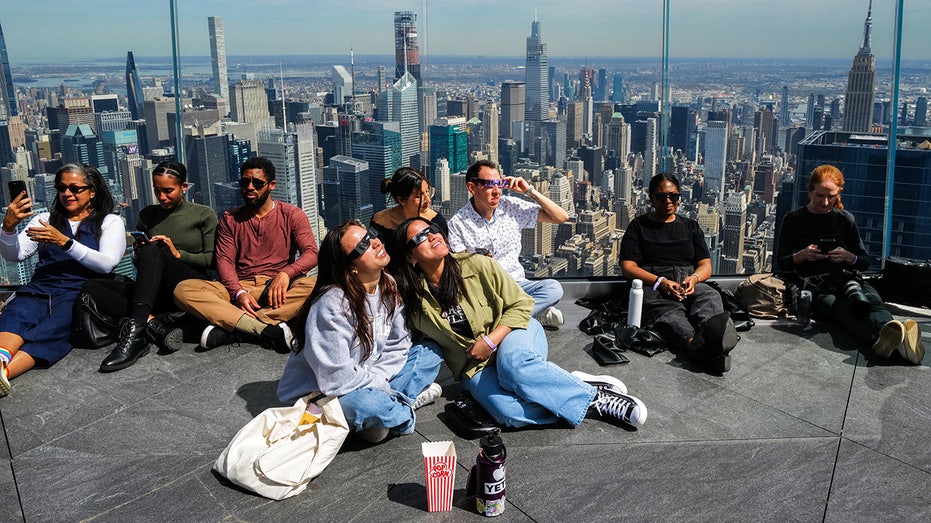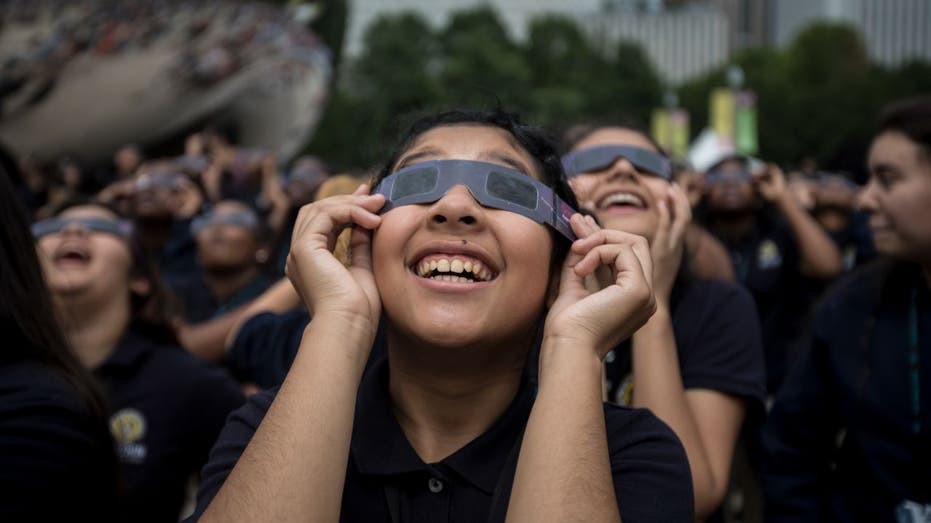Here's how to donate solar eclipse glasses now that you no longer need them
Several companies and organizations are accepting donations of gently used solar eclipse glasses
Vermont resort sees record turnout for Monday’s solar eclipse
Jay Peak Resort President Steve Wright tells ‘The Big Money Show’ that he had rooms booked four years ago for the solar eclipse.
Now that the 2024 total solar eclipse has come and gone, the United States will not see another total eclipse for another two decades.
But those safety glasses could come in handy for other people.
If so inclined, there are a few ways to donate them so that others around the world can safely experience an upcoming solar eclipse in their area.
TEXAS COUPLE SAYS ‘I DO’ IN 100% TOTALITY DURING SOLAR ECLIPSE: ‘JUST MAGICAL’
Glasses retailer Warby Parker has partnered with the organization Astronomers Without Borders to help recycle and redistribute ISO-certified solar eclipse glasses to those with fewer resources.
A Warby Parker representative confirmed to FOX Business on Tuesday that the company — headquartered in New York City — is accepting donations.

A total solar eclipse crossed over much of North America on April 8, 2024. (Brian van der Brug/Los Angeles Times via Getty Images / Getty Images)
People can bring their "gently used" solar eclipse glasses to any Warby Parker location until April 30, the Warby Parker website notes.
The donated glasses will be sent to Astronomers Without Borders — which will vet them to ensure they are safe to be used for another eclipse.
SOLAR ECLIPSE: AIRBNB RENTALS 90% BOOKED ALONG PATH OF TOTALITY
Those glasses then will be shipped to schools around the world.
| Ticker | Security | Last | Change | Change % |
|---|---|---|---|---|
| WRBY | WARBY PARKER INC | 25.52 | +1.71 | +7.18% |
Astronomers Without Borders, based in Calabasas, California, aims to "create and implement astronomy-related programs that inspire and empower a global community of enthusiasts and educators," as well as "cultivate a diverse, international community that will engage astronomy-related enthusiasts and educators in the sharing of resources globally," its website indicates.

People look toward the sky at the Edge at Hudson Yards observation deck ahead of a total solar eclipse in New York City, April 8, 2024. (Charly Triballeau/AFP / Getty Images)
The organization has been recycling eclipse glasses since 2008.
In 2017, Astronomers Without Borders donated thousands of safety glasses overseas following the total eclipse in the U.S.
Those who do not live near a Warby Parker retail location can drop their glasses off to Astronomers Without Borders at one of several other places listed on the organization's website.
ECLIPSE TOURISM BRINGING BIG BUCKS TO AREAS IN PATH OF TOTALITY
Another organization that is collecting eclipse glasses is Eclipse Glasses USA, a Utah-based company that sells ISO-certified eclipse glasses.
People can mail their donated solar eclipse glasses to Eclipse Glasses USA using a USPS first-class mail envelope, says the company's website.

The next solar eclipse will be viewable from parts of Latin America on October 2, 2024. (Alexandra Wimley/Chicago Tribune/Tribune News Service via Getty Images / Getty Images)
The recycling program "is designed to ensure that as many people as possible, especially school children in countries with limited resources, can safely experience the wonder of a solar eclipse," the website says.
Only glasses made in the U.S. and adorned with a manufacturer's address, contact information and ISO logo will be accepted, the company said, confirming on Tuesday to FOX Business that it's accepting donations.
CLICK HERE TO SIGN UP FOR OUR LIFESTYLE NEWSLETTER
"All shipments will be opened and inspected before being repackaged for outbound shipment. Damaged or unusable glasses will be discarded," Eclipse Glasses USA noted.
Donations are accepted up until Aug. 1.
GET FOX BUSINESS ON THE GO BY CLICKING HERE
On Oct. 2, 2024, parts of Latin America will experience an "annular solar eclipse."
These eclipses occur when the moon does not completely block out the sun, creating a "ring of fire" effect.
For more Lifestyle articles, visit www.foxbusiness.com/lifestyle.




















